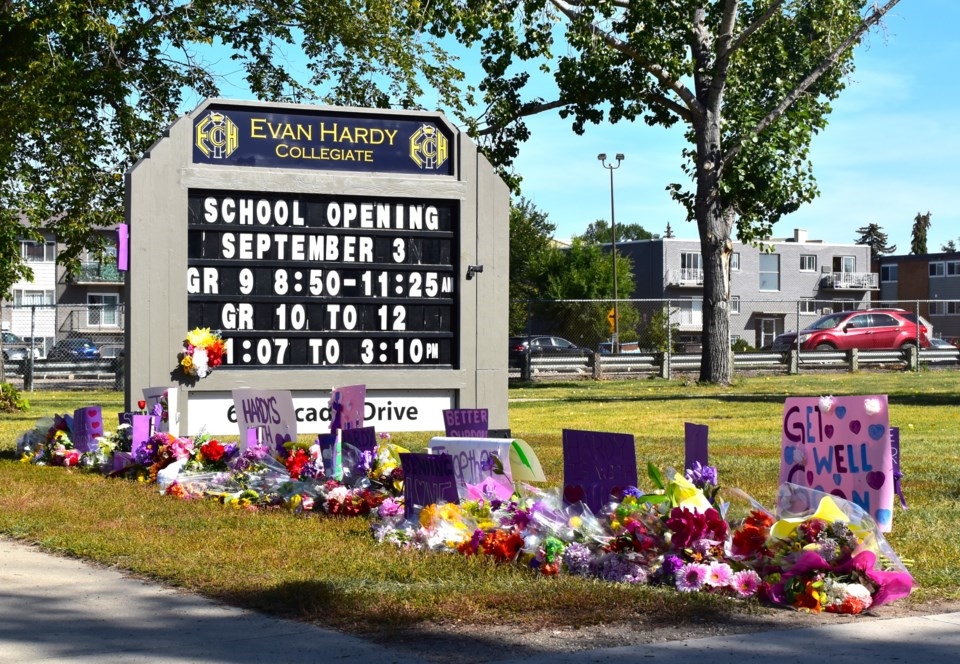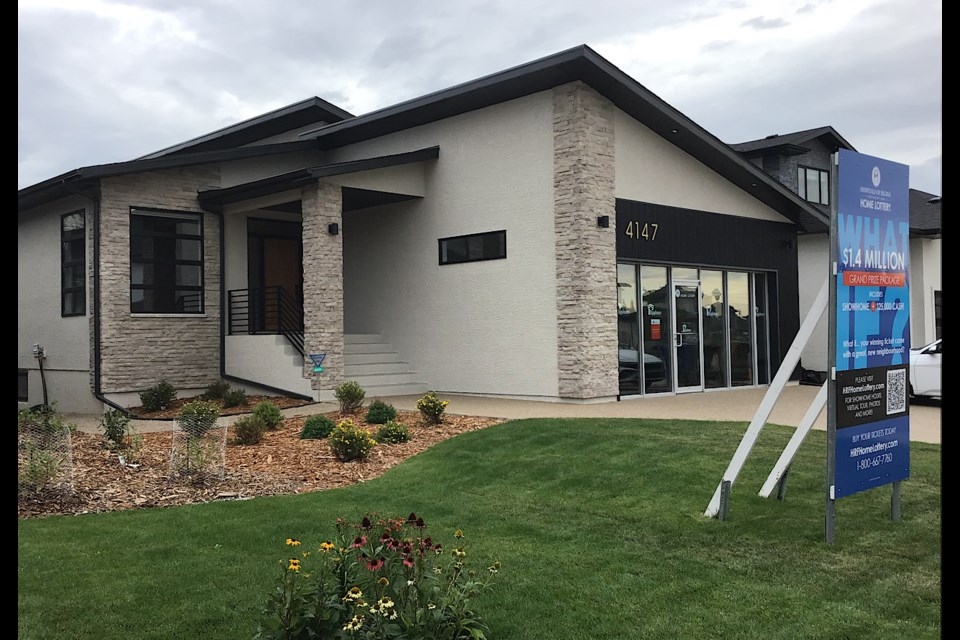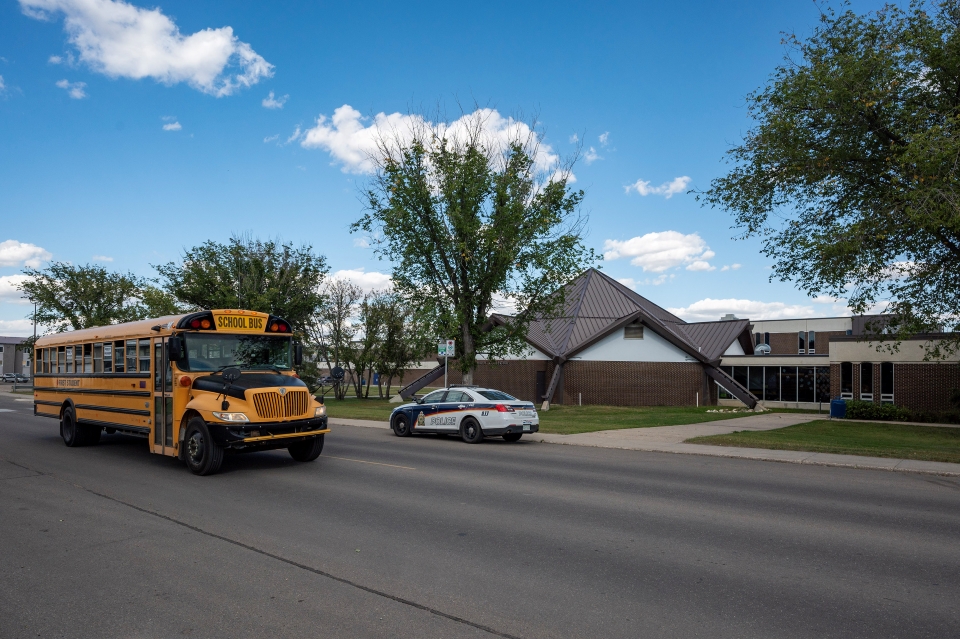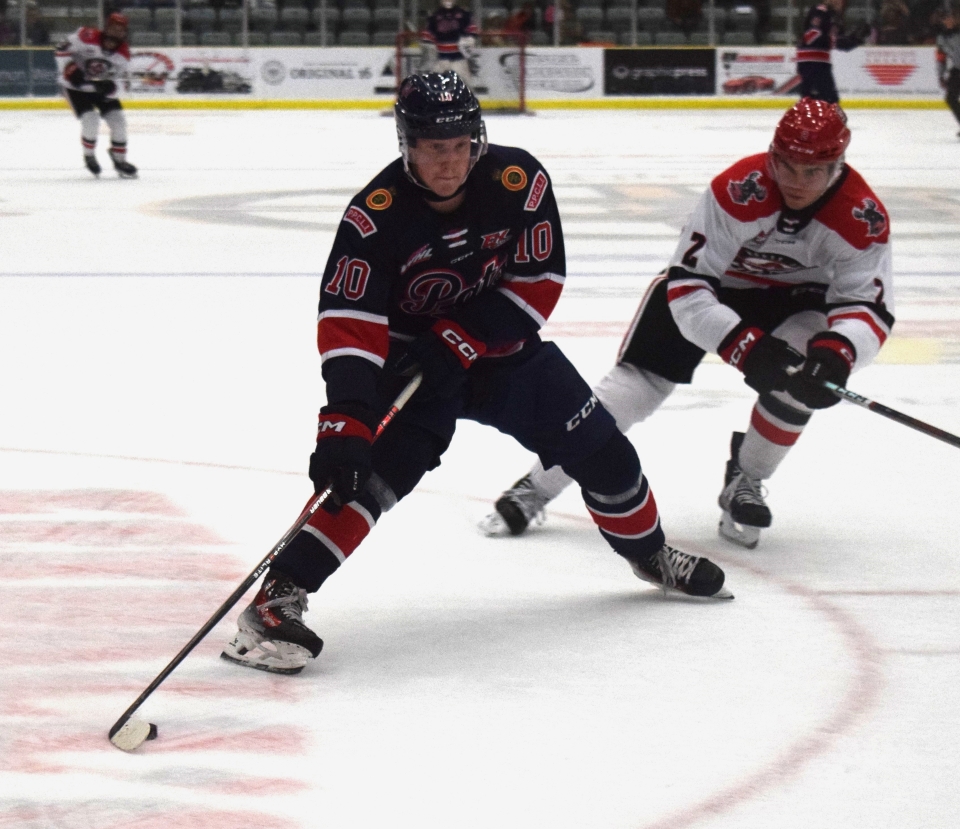Regina Exhibition Association Limited and guests celebrated the official closure of the province’s largest skating rink on a sunny Monday morning at Mosaic Stadium.
Over 13,000 skaters and more than 90 community groups visited the stadium for a skate over the last two months.
Iceville’s closure is a bittersweet moment for organizers and residents involved with the project. While the rink is closing down, around 5,500 pounds of food were raised for the Regina Food Bank from donations collected at Iceville. According to food bank CEO John Bailey, that’s equivalent to about 5,000 meals.
Tim Reid, president and CEO of REAL, called Iceville a refreshing and successful experience for the city. He said it is something they are going to do next winter, however he hopes they can make it bigger and better once the COVID-19 pandemic is behind us.
“We started with 30 people, then we grew it to 50 people. But the reality is if we could have 500 or 1,000 people out there, this could be something really magnificent,” admitted Reid.
Above seasonal weather is set for this week’s forecast in Regina including double digit temperatures on Thursday and Friday, according to Environment Canada. Reid believes there should be no issues with drainage as the ice begins to melt.
“The surface is designed for drainage, so it can actually drain a ton of water, and there is no risk in terms of how fast it will melt versus the drainage capacity for the stadium,” said Reid.
“It’s no different than what we do every year in the spring. We just have to make sure that all the drains aren’t frozen and we don’t see any ice dams. We’ll then be ready for football and soccer season.”
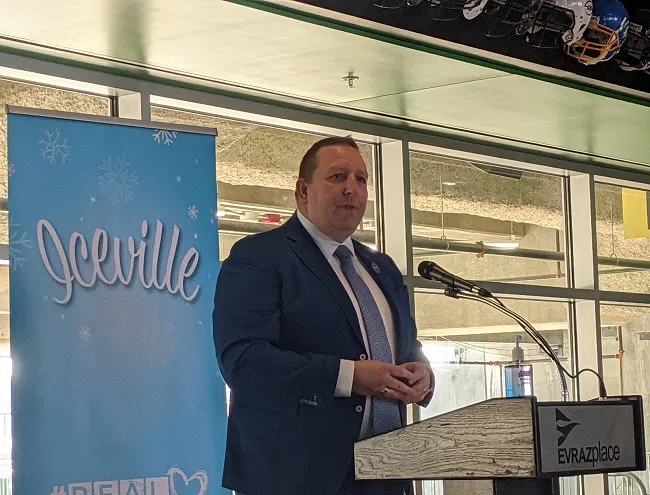
Tim Reid, president and CEO of Regina Exhibition Association Limited. (Photo: Moises Canales/620 CKRM)
Reid noted how the stadium was busier this winter than it is in the summer months because of Iceville’s popularity despite several days of freezing weather conditions. He said they wanted to make sure it was free and accessible this year to residents, but he hinted there could be a nominal fee for next year in order to bring in a revenue stream for REAL.
“When you recognize there are over 200,000 people that want to go for a skate, you actually validate your business model a little bit,” he explained. “I think you will see this come back next year, we will make sure its accessible from a price tag. But I think you will see some kind of a fee to come out for a skate.”
He added that he would like to see Iceville make its return prior to the holiday season so families and friends can spend time together.
Over 24,000 man hours and 1,500 cubic metres of water made Iceville possible. The project ended up costing REAL $20,000, which Reid thinks might be the best investment they have ever made.




